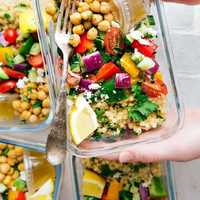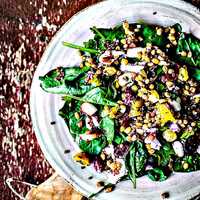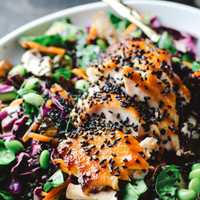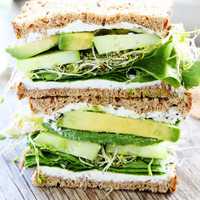35 Powerful Tips To Change Your Eating Habits Big Time
35 Tips To Change Your Eating Habits
Change your eating habits today. You can develop healthy eating habits that will leave you feeling satisfied and nourished.
Good nutrition starts with making healthy food choices when you shop for groceries.
Stock up with real food (food in its natural state, not processed) and plan ahead when you shop.
Plan your meals for the week, and then create your shopping list.
Do not shop when hungry. If your stomach is empty, you will often buy impulsively, which may not be the right choice for you.
Below you will find 35 tips, popular recipes & meal plans!
![Unleash Your Six-Pack with the Best Ab Exercises]() ab exercisesUnleash Your Six-Pack with these 11 Best Ab ExercisesGet ready to sculpt your abs and boost your core strength with our comprehensive guide to the best ab exercises. Whether you're a beginner or a fitness enthusiast, these exercises will help you achieve your fitness goals.
ab exercisesUnleash Your Six-Pack with these 11 Best Ab ExercisesGet ready to sculpt your abs and boost your core strength with our comprehensive guide to the best ab exercises. Whether you're a beginner or a fitness enthusiast, these exercises will help you achieve your fitness goals.![30 Day Ab Workout]() 30 Day Ab Challenge PDF30 Day Ab Challenge For Sculpted Killer Abs (Download PDF)Download our free PDF guide and start sculpting your abs with this intense 30-day challenge.
30 Day Ab Challenge PDF30 Day Ab Challenge For Sculpted Killer Abs (Download PDF)Download our free PDF guide and start sculpting your abs with this intense 30-day challenge.
![Get Fit Fast with 5 Min Abs for Everyone]() 5 Min Abs for EveryoneGet Fit Fast with 5 Min Abs for EveryoneDiscover the secret to a toned midsection with our 5 Min Abs for Everyone program. Perfect for fitness enthusiasts of all levels, this routine will have you feeling stronger and more confident in no time.
5 Min Abs for EveryoneGet Fit Fast with 5 Min Abs for EveryoneDiscover the secret to a toned midsection with our 5 Min Abs for Everyone program. Perfect for fitness enthusiasts of all levels, this routine will have you feeling stronger and more confident in no time.![Unleash Your Strength with the Best Kettlebell Core Workouts]() Best Kettlebell Core WorkoutsUnleash Your Strength with the Best Kettlebell Core WorkoutsDiscover the power of kettlebell training with our guide to the best kettlebell core workouts. Transform your fitness routine and build a stronger, more resilient core.
Best Kettlebell Core WorkoutsUnleash Your Strength with the Best Kettlebell Core WorkoutsDiscover the power of kettlebell training with our guide to the best kettlebell core workouts. Transform your fitness routine and build a stronger, more resilient core.
Healthy Food List Instructions
Let’s begin. Below are key foods you can include on your grocery shopping list, depending upon your dietary preference.
-
Lots of leafy green and cruciferous vegetables: arugula, bok choy, broccoli, brussel sprouts, cabbage, cauliflower, collards, horseradish, iceberg lettuce, kale, mixed greens, mustard greens, radish, romaine, spinach, swiss chard, turnip greens, wasabi and watercress.
-
Non starchy vegetables: alfalfa sprouts, artichoke, beans, celery, cucumber, fennel, green onions, mushrooms, okra, parsley, peppers, scallions, snow peas, squash, tomatoes and zucchini.
-
Healthy root vegetables: beets, carrots, garlic, onions, parsnip, pumpkin, rutabaga, sweet potato, turnip and yams.
-
Variety of different colour fresh fruits and berries.
-
High quality protein: organic, free range or omega 3 white or brown eggs.
a) Cold water fish full of omega 3 fatty acids – herring, mackerel, sardines, sockeye salmon, trout and tuna. Please avoid farm raised fish.
b) Organic, grass fed or free range beef, chicken, goat, lamb, pork, turkey or wild game. Shop at your local meat market.
c) Vegetable protein – beans, chickpeas, edamame, leafy greens, lentils, non-dairy milk, peas, seeds, soy nuts, tempeh, tofu, quinoa and unsweetened cocoa powder.
-
Healthy plant fats: avocados, cacao nibs, chia seeds, coconut meat, coconut oil, flax seeds, flax oil, hemp seeds, hemp oil, olives, olive oil, sacha inchi oil, sesame seeds, sunflower seeds and see nuts below:
-
Raw or dry roasted unsalted nuts: almonds, cashews, hazelnuts, peanuts, pistachio, macadamia, walnuts and all natural almond, cashew and peanut butters.
-
100% whole grain versus refined white bread, pasta, rice and flour.
-
Use natural sources of sugar when baking such as agave, brown rice syrup, coconut sugar, organic maple syrup, raw honey or stevia.
-
Best dairy and non-dairy options are: grass feed milk and butter, organic milk, raw milk – please avoid processed margarine.
Greek yogurt and not regular sugar laded yogurt. Dairy alternatives such as almond, coconut, hemp and rice milk.
Soy milk is not recommended due to creating an imbalance in hormone levels. However, if you really love soy milk do not consume it on a regular basis.
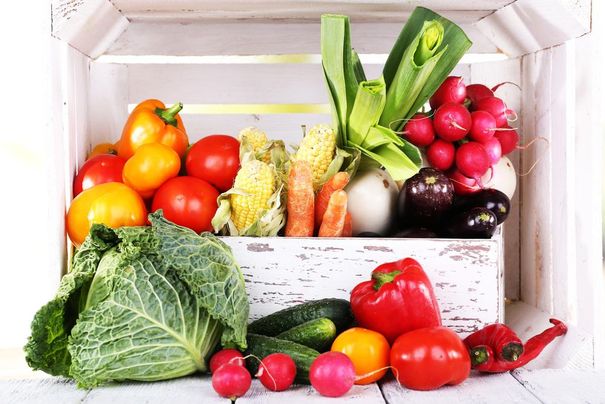
35 Tips To Change Your Eating Habits
Gradually work on adopting the tips indicated below.
- Eat real, whole foods, and if possible buy organic to eliminate chemicals, which contribute to weight gain or shop at the local market or farm.
Shop focusing on variety. Therefore, purchase vegetables and fruits that are in season so you will eat a greater variety of fruits and vegetables. If you have a choice between potatoes or sweet potatoes, choose sweet potatoes.
- If you have been on many diets, you have probably been starving yourself of certain key nutrients found in live foods, high quality proteins and omega-3 fatty acids.
When you buy a variety of foods you will ensure that your body is receiving all the nutrients it requires.
-
Purchase enough fish for at least two servings per week. Fish is good for your heart. Salmon is especially healthy since it contains omega-3 fatty acids.
-
Fill your fridge with organic, grass fed or free range red meat, skinless poultry, turkey and eggs. If you do not have an allergy to dairy, buy organic dairy since it’s filled with calcium and vitamin D, without the additional chemicals.
Do not buy processed cheese, but rather, buy organic full-fat cheese. In North America many believe that full fat in the diet contributes to weight gain.
However, the real culprit is refined sugar. Europeans typically consume full fat milk and cheese from grass fed cows. Their refined sugar consumption is lower than North Americans and Europeans, in general, weigh less than North Americans.
-
Consume nothing in a box, can, package or bottle that list more than five ingredients. You must be able to pronounce and recognize the first five ingredients as natural ingredients.
-
Avoid products that list sugar, or a form of sugar, within the first three ingredients.
-
Substitute with organic wine or beer as a healthier option, without the chemicals.
-
Shop for cereals, pasta and breads, choose whole grains with natural ingredients. When you buy cereals, avoid ones with added artificial sugar.
Instead select or create your own cereals that substitute natural sugar for refined sugar such as raw honey, maple or brown rice syrup.
- When you substitute whole grains for refined grains, you will receive much-needed fiber; you will fill up faster so you are less likely to overeat.
Fiber also inhibits your body’s absorption of excess sugar, which is converted to fat. You can find fiber in flaxseeds, beans, chia seeds, lentils, barley, fresh fruits and vegetables.
- Always choose brown rice and pasta instead of white rice and pasta. 100% whole wheat bread is healthier than white bread.
If you have a gluten allergy select whole grain gluten free options. Purchase from your local bakery versus a grocery store. The odds will be in your favour that the ingredients are natural with less sugar, preservatives and chemicals.
- A good dietary habit to adopt is to drink more water. Water makes up approximately sixty percent of your body weight.
Water carries nutrients to your cells, flushes toxins out of your vital organs and provides a moist environment for your nose, ear, throat and tissues. Not drinking enough water can lead to dehydration.
You need to drink at least two litres of water per day; this is about eight glasses. Water will actually curb your hunger. Many people mistake thirst for hunger.
When you feel hungry, drink a glass of water, and then wait twenty minutes to see if you are still hungry. Drinking cold water actually speeds up your metabolism; your body will work harder to warm the liquid and this means you are burning more calories.
Drink a glass of water, first thing in the morning on an empty stomach, between meals, and before and after exercise.
-
Are you in the habit of consuming a can of soda daily? A can of soda, high in sugar and chemicals, when eliminated in your diet, will pave the way for weight loss. Work on eliminating this beverage by reducing consumption over time.
-
Forget store bought fruit juice, eat fresh fruit instead.
-
Herbal tea is a good alternative to a late night snack because it helps to satisfy your hunger.
-
Drink green tea. Unsweetened green tea boosts metabolism. It is refreshing and much healthier than other beverages.
-
When you cook at home, there are changes you can make to ensure your meals are healthier. Always make a salad and have it on the table no matter what you are eating.
Keep a jug of water on the table, as well, so that you maintain your water intake. Make sure you sit at the table, rather than in front of the television.
When you eat in front of the television, you may not realize you’re full. The result is that you consume much more than you need, without realizing it.
Pay attention to what you eat, and savour every bite. Choose foods that are nourishing and enjoyable.
-
When cooking your meals, use omega-rich olive or coconut oil instead of vegetable oil.
-
Steam or roast your vegetables.
-
Substitute table salt with sea salt. Try adding garlic, pepper and spices to your home cooking.
When you make a meal with spices, concentrate on the sensory characteristics of the meal; its taste and smell.
When your food is more enjoyable, you will feel fuller faster and you will not be tempted to overeat. Try chilli peppers, it is an appetite suppressant that also boosts metabolism.
- Do not overcook your food. When you overcook your food, you reduce the number of nutrients that your meal contains.
When you do not get enough nutrients, you do not feel satisfied and you will end up eating more. Try eating more raw foods like salads and fruits.
-
If you enjoy creamy salad dressing find or create a recipe to ensure the ingredients are natural, without artificial ingredients.
-
It's okay to add real butter or olive oil to vegetables.
-
Soup is a great choice for a main meal. Make yourself a healthy broth-based soup and focus on fiber rich soups that are filling.
-
Eat your meals on blue plates. The colour blue has been proven to decrease a person’s appetite, so use blue plates and napkins, and lay out a blue table cloth.
You can also eat from a salad plate, which is much smaller. This is an easy way to lower your portion sizes. It is also a way to trick your brain into thinking that you are actually eating more.
You can reduce the amount you are eating by approximately twenty percent when using a smaller plate.
-
Having snacks between meals makes your metabolism work faster. When you have frequent snacks and meals (every three or four hours), you will maintain your blood sugar levels, which will help you to avoid overindulging.
-
If you are craving a snack, make sure you have a healthy snack ready.
There are many healthy snacks that you can choose from: apples or baked apple chips, fresh berries, home-made bran muffin, apple slices with real cheese, hard boiled eggs, carrots with hummus, half an avocado filled with home-made salsa, hand full of almonds, home-made dried fruit/nut mix or celery sticks.
- Purchase at a local bakery, organic café, natural whole food store or create your own home-made healthy dessert.
Choose one of the following: fruit salad, greek yogurt with fruit, poached pears, baked apples with raisins, watermelon ice pops, fruit kebabs, green smoothie, banana with natural peanut butter, roasted figs, home-made ice cream or chocolate mousse made with avocado.
Just create your favourite dessert with healthier natural ingredients. If you want to indulge in something else that is not on this list, go ahead just consume your dessert prepared with whole food ingredients.
This is not about deprivation, just go for real ingredients versus processed and watch your portions.
- You may have developed digestive problems from trying many diets over the years. When you are not digesting your food correctly, you will not effectively extract the nutrients from the food that you are eating.
You can take probiotics and eat culture and fermented foods. Fermented foods include greek yogurt, sauerkraut, miso, kimchi, kombucha and fermented lemon jello.
These will normalize your digestive enzymes so you will be able to digest your food correctly.
Without probiotics, our immune system begins to fall apart. This causes an increase in colds and allergies. Your body will not be able to get rid of toxins easily, inhibiting weight loss.
- It is better to adjust your dietary habits by keeping a food journal rather than counting calories.
When you keep a food journal, you become aware of your eating habits along with what triggers an unhealthy food choice.
You instantly become aware of how much, what, when, and why you consumed that particular food.
In a food journal, write down what you are eating, the time of day you eat it, the portion size, and your mood.
Do this for 14 days – that’s it. A longer interval is not required, as that is sufficient time to determine your habits and what you need to tweak.
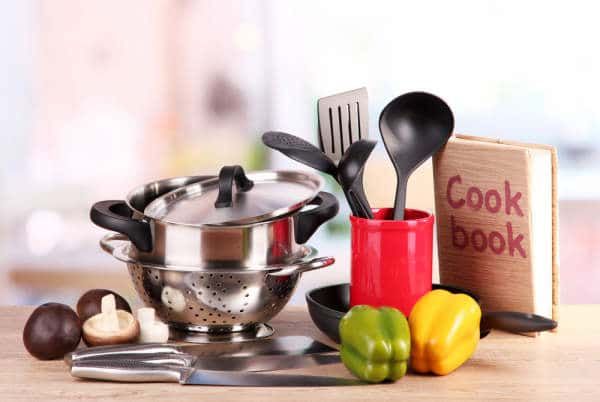
Remember a food journal will help identify which areas you need to change in order to lose and maintain weight.
You may become aware that you are snacking too much in the evening. It has probably become a bad habit to eat something while watching television late at night.
Make a rule for yourself that you will not eat at least two to three hours before you go to bed.
When you sleep, the functions of your digestive tract and digestive enzymes slow down.
Your metabolism also slows down significantly. If you eat late at night, whatever you eat will be digested and metabolized at a much slower rate.
If you are counting calories, you need to know that calorie labels are inaccurate.
The calorie information is normally off by approximately twenty percent.
When you count calories, you are more likely to choose packaged, processed food.
Counting calories does not mean you are getting all your nutrients.
Counting calories takes the joy out of eating an amazing meal.
If you are constantly worried that you are consuming a certain amount of calories, you will not enjoy your meal. You will eventually get sick of counting calories.
Counting calories is not a long term solution. For this reason alone we do not advocate calorie counting, just focus on consuming real foods.
- You need to plan your meals if you want to lose weight. If you wake up in the morning and rush out the door, with no time for breakfast, you will probably stop and buy an unhealthy alternative.
With little planning you can make yourself a healthy breakfast. Pack yourself a healthy sandwich and a salad for lunch, and prepare chicken with vegetables for dinner.
Make sure you eat breakfast every day. It is very unhealthy to skip meals, especially breakfast.
When you skip breakfast you will eat more throughout the day due to hunger. If you consume a breakfast that is filling, like poached eggs on whole grain toast with raw vegetables, you will not be tempted to snack throughout the morning.
-
Take a packed lunch to work. When you take your own lunch, you will be able to make sure it will be healthy. You will also stop yourself from buying something unhealthy.
-
Planning helps you build new habits. Planning your healthy meals, ahead of time, is one of the most effective ways to lose weight.
If you do not want to spend a lot of time in the kitchen cooking, cook larger portions of your favourite, healthier meals and freeze the extra portions.
This will help when you are tired in the evening and are tempted to order an unhealthy “take out” meal.
When you plan meals you are ensuring you are eating a healthy variety of foods.
-
Make sure the only food on your kitchen counter is a bowl of fruit.
-
When you eat at restaurants, you need to create new, healthier dietary habits. It is possible to eat out and still lose weight. If you know that you are going out for dinner in the evening, do not starve yourself.
Have a large salad for lunch, nuts for your afternoon snack, and eat fruit thirty minutes before the meal.
This will stop you from feeling starved when you arrive at the restaurant and prevent you from eating the bread in the basket. Drink a glass of water before ordering. This will make you feel fuller and you will eat less.
Limit your alcohol intake to just one glass of wine. When you drink more, you will find that you overindulge when you eat.
The food portions at restaurants are very large. Try to eat just a half to three quarters of what is on your plate.
When you eat, there should be a time during the meal when you naturally pause and put down your knife and fork.
When this happens, stop eating and wait a few minutes. After this break, you will probably realize you are full.
You can also order an entrée instead of a main meal. If you order fish, get it grilled, steamed, not fried.
Salads or vegetables are better than starchy, carbohydrate side dishes, such as french fries.
Do not order dessert, unless there is a fruit salad option. Instead wait until you get home and get in the habit of making your own dessert with healthier, natural ingredients.
If you order pasta, choose whole grain, skip the creamy alfredo sauce and choose tomato sauce instead.
When you order something to drink, order it unsweetened.
Order plain iced tea instead of artificially sweetened iced tea, or order a plain latte instead of a flavoured latte. Do not add artificial sugar to your after-dinner coffee.
- Chew slowly when you eat. This will allow your food to digest and your stomach to register when it feels full, before you continue eating.
When you chew, the enzymes in your saliva break down your food into digestible pieces. Eat slower because it takes your brain some time to receive the signals from your stomach that you are full.
It generally takes you approximately twenty minutes to start feeling full, so eat more slowly.
To wrap up this section, to change your eating habits is to consume real foods and reduce or eliminate processed foods.
Why? Processed foods contain dyes, chemicals, additives, refined carbs, sugar, trans fat and salt.
Processed foods lacks water, vitamins, minerals, antioxidants and enzymes.
Therefore, it is devoid of nutrition and is low in fiber. These foods are addictive, based on the stimulation of dopamine.
Processed foods are designed to make you overeat. Processed, fake, and diet food leads to weight gain.
Real food increases your intake of nutrient-dense foods, fiber, water and healthy fats. In other words, it has texture; is filling and nourishing.
Real food balances blood sugar levels and hormones. As your body becomes more balanced, excess weight starts to drop off.
There is no need to count calories, weigh food, or spend hours in the gym.
A proven health and weight loss strategy, real food makes health and weight loss achievable and sustainable.
Remember focus on changes that fit your lifestyle. Make adjustments, one at a time, until it becomes an ingrained habit you really don’t have to think about.
In conclusion, learn how to eat clean and develop lifestyle habits that last.
Popular Recipes Featured On Change In Seconds
To change your eating habits to eat clean, bookmark any of the following healthy recipes to get started on your journey.
- Healthy Meal Prep Bowls
- Easy Healthy Dinner Ideas
- Summer Dinner Recipes
- Instant Pot Beef Recipes
- Ground Beef Recipes
- Salmon Recipes
- Vegan Meal Prep Ideas
- BBQ Veggie Burgers
- Homemade Asian Recipes
- Tortilla Wrap Recipes
- Chicken Thigh Recipes
- Delicious Vegan Meals
- Healthy Pizza Recipes
- Clean Eating Recipes
- Pork Chop Recipes
- Healthy Mexican Recipes
- Ketogenic Dinner Recipes
- Easy Jackfruit Recipes
- Noodle Bowl Recipes
- Quinoa Salad Recipes
- Healthy Salad Recipes
- Rice Noodle Recipes
- Buddha Bowl Recipes
- Chicken Drumsticks
- Healthy Side Dishes
- Meal Prep Recipes
- Fall Salad Recipes
- Canned Tuna Recipes
- Easy Chicken Recipes
- Crock Pot Recipes
- Slow Cooker Recipes
- Chicken Instant Pot
- Keto Recipes
- Vegan and Vegetarian Recipes
- Instant Pot Recipes
- Vegan Meal Prep Bowls
- Chicken Drumsticks
- Healthy Side Dishes
- One Pan Meals
- Healthy Sandwiches
- Balsamic Mushroom Recipes
- Salad Recipes With Chicken
- Easy Healthy Dinner Ideas
- Ketogenic Dinner Recipes
- Vegan Sandwiches
- Healthy Wraps





